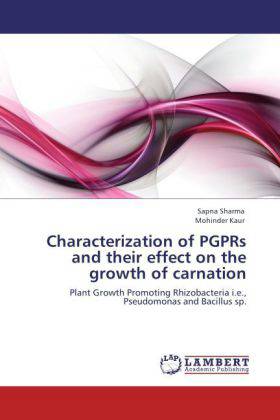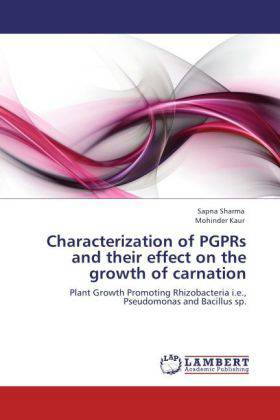
- Afhalen na 1 uur in een winkel met voorraad
- Gratis thuislevering in België vanaf € 30
- Ruim aanbod met 7 miljoen producten
- Afhalen na 1 uur in een winkel met voorraad
- Gratis thuislevering in België vanaf € 30
- Ruim aanbod met 7 miljoen producten
Zoeken
Characterization of PGPRs and their effect on the growth of carnation
Plant Growth Promoting Rhizobacteria i.e., Pseudomonas and Bacillus sp.
Sapna Sharma, Mohinder Kaur
Paperback | Engels
€ 86,45
+ 172 punten
Omschrijving
The new environmental criteria and the necessity to enhance the agricultural output for feeding the world population and fulfilling its other requirements have made it necessary to invent new technologies. In recent years, the interest in soil microorganisms has increased because some of these microorganisms can promote the growth of plant or to avoid the attack of soil borne plant pathogens. These beneficial bacteria are usually referred to as a plant growth promoting rhizobacteria or PGPR or by one group of workers in China as yield increasing bacteria or YIB. Pseudomonas and Bacillus species are the most diverse and versatile group of indigenous microflora of almost all the horticulture and forestry crops. They are potential sources of diverse and useful metabolites that are important agriculturally, industrially and biotechnologically. Their potential to synthesize different secondary metabolite with different biological activities is the important function of soil fertility and sustainability of crops. They affect the soil properties, chemical composition of plants an
Specificaties
Betrokkenen
- Auteur(s):
- Uitgeverij:
Inhoud
- Aantal bladzijden:
- 148
- Taal:
- Engels
Eigenschappen
- Productcode (EAN):
- 9783847330196
- Verschijningsdatum:
- 6/01/2012
- Uitvoering:
- Paperback
- Afmetingen:
- 152 mm x 229 mm
- Gewicht:
- 227 g

Alleen bij Standaard Boekhandel
+ 172 punten op je klantenkaart van Standaard Boekhandel
Beoordelingen
We publiceren alleen reviews die voldoen aan de voorwaarden voor reviews. Bekijk onze voorwaarden voor reviews.







